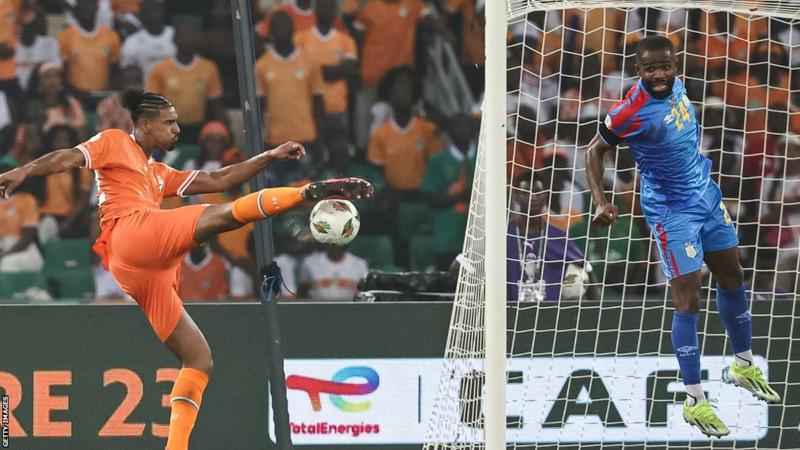Sebastien Haller scored the winner as 2023 Africa Cup of Nations, AFCON, hosts Ivory Coast beat DR Congo to set up a final meeting with Nigeria. The only goal of a cagey contest in Abidjan came in the 65th minute when Haller’s volley bounced down into the ground and up over Leopards Continue Reading
Floods have wreaked chaos in Kinshasa – the capital of the Democratic Republic of Congo – with water pouring into homes and residents navigating submerged roads via canoe. The overflowing River Congo, passing through much of the country, has also swamped places outside the capital. The vast, vital waterway has reached its highest level in […]Continue Reading
Fighting has again erupted in the east of the Democratic Republic of Congo between pro-government forces and rebels from the M23 group. Residents say the rebels have occupied the town of Kitshanga in North Kivu province since Saturday. Several people have been taken to hospital with gunshot wounds, a local radio station reported. “The rebels […]Continue Reading
By Olaolu Fawole The adjudicatory chamber of the independent Ethics Committee has banned Mr Jonathan Bukabakwa, a former youth coach at clubs of the Urban Football Agreement of the regions of Lipopo and Malebo in Congo DR, from all football-related activities for 20 years. Mr. Bukabakwa was banned after having found him guilty of sexually […]Continue Reading
The Democratic Republic of Congo has confirmed a new case of Ebola in its violence-wracked east, the country’s health ministry said, just weeks after the end of a previous epidemic. The DRC early last month declared its latest Ebola outbreak over, more than two months after the virus re-emerged in the northwestern Equateur province. Last […]Continue Reading
Dozens of soldiers from the Democratic Republic of Congo have crossed into Uganda after the M23 rebels blocked the main road to Rutshuru. Ugandan army spokesperson Brig Gen Felix Kulaigye told the BBC that the soldiers were being received at a Ugandan army barracks at the border town of Bunagana. A source told the BBC […]Continue Reading
Fourteen civilians were killed in an attack on a displaced persons’ camp in Ituri province in the conflict-torn eastern Democratic Republic of Congo, a monitoring group said on Tuesday. The attack occurred on Monday, according to the Kivu Security Tracker, a respected monitor of violence in the region. It added that it suspected militants from […]Continue Reading
Belgian gold dealer, Alain Goetz and a network of companies have been sanctioned by the US for allegedly smuggling hundreds of millions of dollars worth of gold from the Democratic Republic of Congo. The US government says since 2016, Mr Goetz has been trading illegally in gold that has come from Congolese mines controlled by […]Continue Reading
